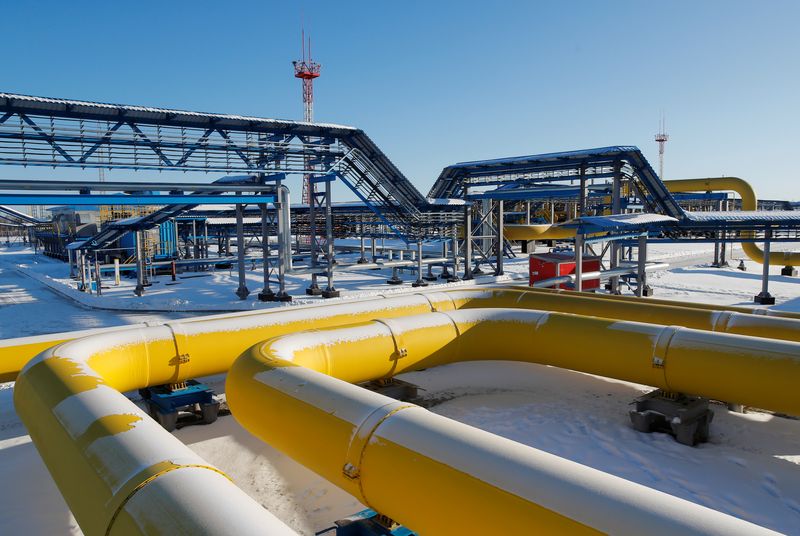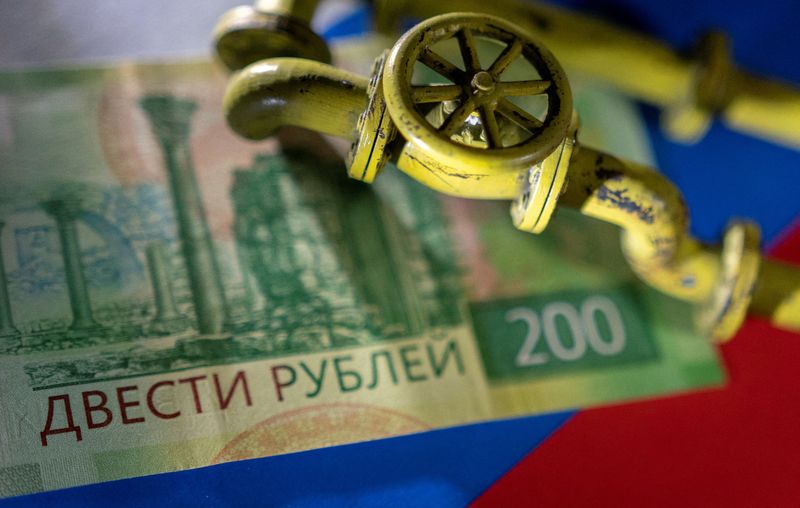FRANKFURT (Reuters) - Germany has activated the first stage of an emergency plan to manage gas supplies in Europe's largest economy in preparation for a possible disruption or halt in natural gas supplies from Russia.
Russia accounted for 55% of Germany's gas imports in 2021 and 40% in the first quarter of 2022.
Economy Minister Robert Habeck has said Germany will not achieve full independence from Russian supplies before mid-2024.
WHAT'S THE PROBLEM?
Moscow said last week it would draw up a mechanism by March 31 under which so-called "unfriendly" countries - those behind sanctions imposed over Russia's invasion of Ukraine - would pay for gas in roubles. That includes Germany, Europe's industrial powerhouse, and other European allies.
Most now pay in euros or dollars.
Habeck, who is the minister responsible for Germany's energy security, has rejected Russia's demand, saying contracts would be honoured under current terms.
Russia's biggest German customers are Uniper, RWE and EnBW's VNG, which all have long-term gas supply contracts. They have not commented on individual preparations for any disruption.
WHAT IS GERMANY'S GAS PLAN?
Berlin's "Emergency Plan Gas" has three crisis levels.
The first level, which the government has triggered, is the early warning, when there are signs a supply emergency could develop. The second is alarm, when a disruption to supply or extraordinarily high demand upsets the usual balance but can still be corrected without intervention.
The third level is emergency, when market-based measures have failed to remedy shortages. At this stage, Germany's network regulator, the Bundesnetzagentur, must decide how to distribute any remaining gas supplies across the country.
WHO IS AFFECTED FIRST?
If Germany does not secure enough gas, industry, which accounts for a quarter of German gas demand, will be hit first.
"This means that industrial production gets lost, that supply chains get lost," Leonhard Birnbaum, chief executive of German energy group E.ON, told public broadcaster ARD. "We are certainly talking about very heavy damages."
Private households will have priority over industry, while hospitals, care facilities and other public sector institutions with special needs would be last to be affected by a disruption.
Electricity utilities that accounted for 13% of gas consumption last year could in theory switch to coal burning plants within their portfolios. However, an ongoing coal exit programme might have to be changed under the emergency laws to ensure enough capacity is ready.
Apart from energy providers, the industries most worried about losing gas, include chemicals, where gas is used for making everything from plastics and fertiliser to fibres and solvents. In turn, carmakers depend on chemical products for products such as batteries and laquer.

Union IG BCE (NYSE:BCE) has said BASF's Ludwigshafen site could come under review for reducing operations should gas supplies more than halve.
Refineries need gas to run crackers to make products including naphtha, gasoline, jet fuel, diesel and heating oil.
